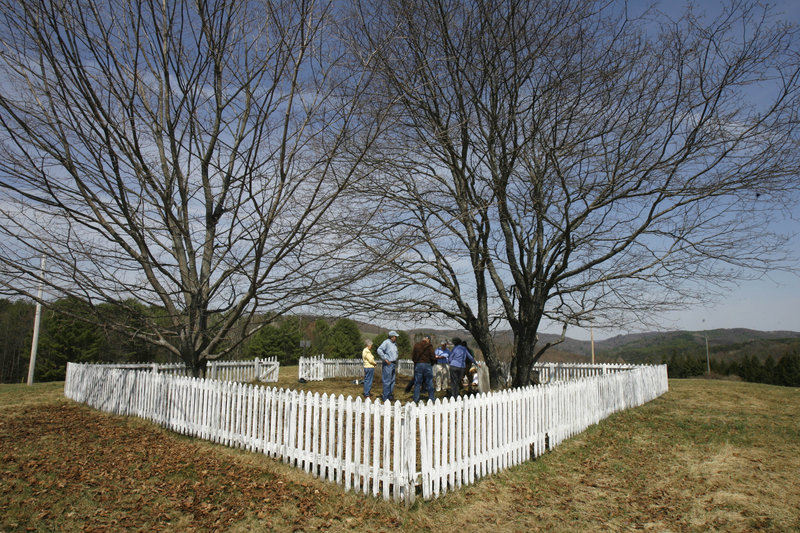MONTPELIER, Vt. – The Vermont Supreme Court on Friday cleared the way for a Hartland landowner to move a cemetery of more than 150 years, over the objections of the family of two former owners of the property whose ashes were buried there in 1983.
In reversing a lower court, the justices said Jerome King of Hanover, N.H., and his family do not have rights to keep his parents’ cremated remains buried in a plot on land now owned by telephone executive Michel Guite.
It was a victory for Guite, chief executive of the Vermont Telephone Co., in a battle that began shortly after he bought the property, a farm more than 200 years old, in 2008. Guite has often come under fire for his stated intent to move the graveyard. The town passed a nonbinding resolution against the proposal, and the head of the Vermont Old Cemetery Association called the plan “a heinous thing.”
Guite said he wanted to move the cemetery to a corner of the property by a town road, to allow descendants of the Aldrich family, which created the burial ground in the 19th century, easier access. Its current location on a hilltop on the more than 100 acres had been poorly tended and had become a “party site,” where beer cans, drug paraphernalia and the remains of fireworks have been found, Guite said in an interview. It was also near where he wanted to build a house.
Aldrich descendants sold the property in 1853, “excepting out of the above described premises 41 feet of ground by 27 feet which is the burying ground on said premises,” according to the deed drafted at the time. That meant, according to the Supreme Court, that the Aldrich heirs have maintained ownership of the tiny burial plot ever since, while the surrounding land has had a succession of owners.
Among them were Robert W. and Dorothy B. King, who bought the property in 1950 and died during the 1970s. They were cremated and their ashes were buried in the old Aldrich plot on the land they loved so well, said their son Jerome King, now 84. King and his family objected strongly when they heard that the ashes of Robert and Dorothy King were to be exhumed and moved.
The legal issue, the court said, was whether the 1853 deed created a “fee simple” provision maintaining outright ownership of the burial plot with the Aldrich descendants, or whether it was an “easement,” extending broader rights to subsequent property owners to use the plot as a burial ground.
Reversing the decision of Windsor Superior Court Judge Harold Eaton Jr., the unanimous ruling said the Aldrich descendants maintain exclusive rights to the burial plot and the King family “had no right to bury the cremated remains in it.”
Send questions/comments to the editors.



Success. Please wait for the page to reload. If the page does not reload within 5 seconds, please refresh the page.
Enter your email and password to access comments.
Hi, to comment on stories you must . This profile is in addition to your subscription and website login.
Already have a commenting profile? .
Invalid username/password.
Please check your email to confirm and complete your registration.
Only subscribers are eligible to post comments. Please subscribe or login first for digital access. Here’s why.
Use the form below to reset your password. When you've submitted your account email, we will send an email with a reset code.